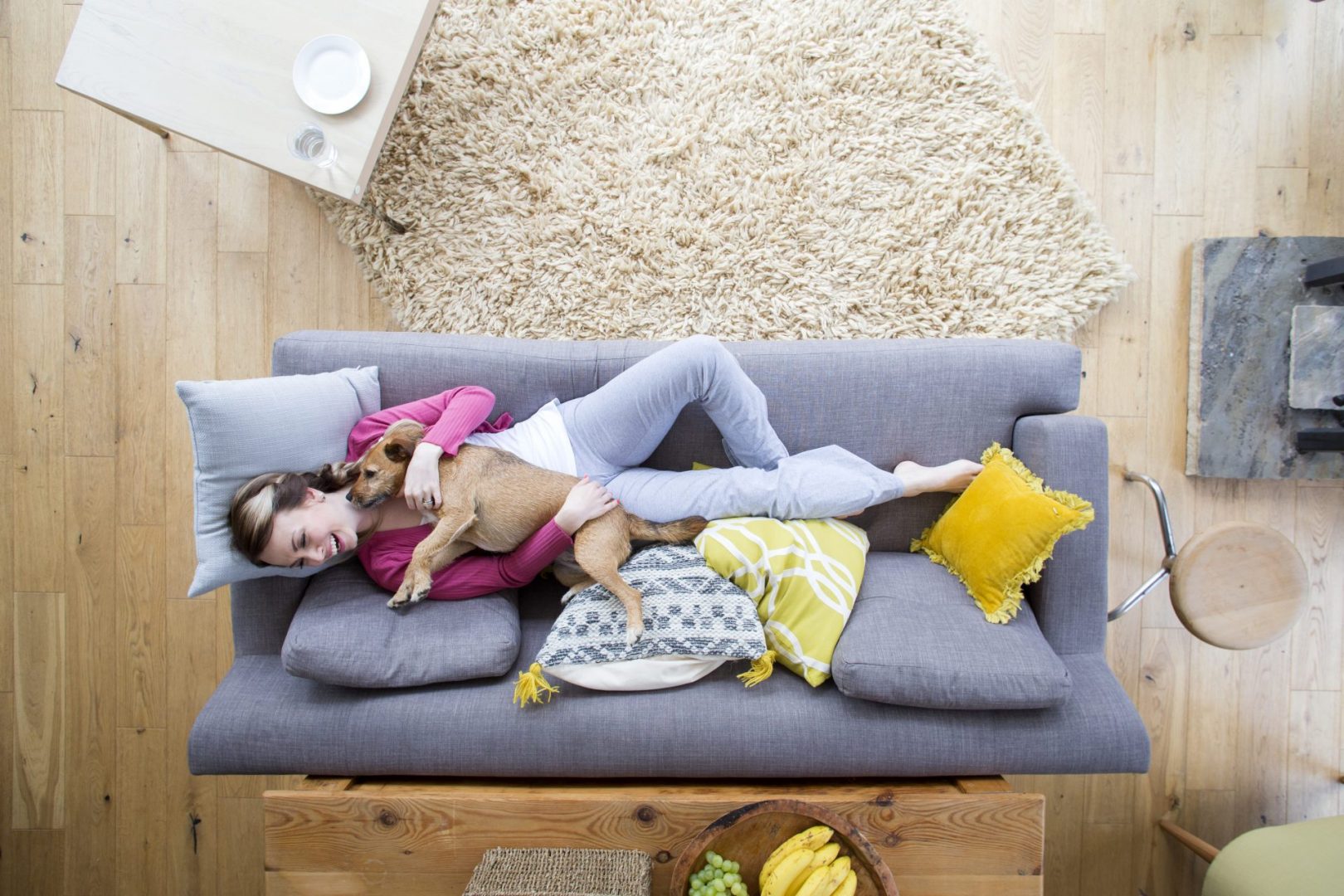During the pandemic, it seems like everyone is getting a pet. It’s known as the “buffering effect” when pets help fill the gap of our limited social interactions with humans. Any pet owner will attest to the idea that pets help us feel less lonely and isolated.

You’ve decided you want a dog to keep you company. You need your pet to be content while you’re away and happy to see you when you return. But how do you choose one that meets your single lifestyle? These tips will help you find a dog to be by your side, who’ll also be accommodating when you meet that special someone.
Lifestyle
 We’re drawn to the cuteness of dogs, but we really need to consider our lifestyles more.
We’re drawn to the cuteness of dogs, but we really need to consider our lifestyles more.
In my book “Leashes and Lovers,” I created categories to consider for your single lifestyle, who you’re seeking, and which breeds will help best fit the pet and your desire of a human mate.
Exercise
Are you active? If so, a dog from the Exercise category will enjoy doing agility training or going with you on hikes and adventures. Suggested dogs include Alaskan Malamutes, Australian Cattles, Australian Shepherds (Aussies), Belgian Shepherd Malinois, Coonhounds, Border Collies, and Labrador Retrievers.

If you’re more of an armchair athlete, a dog from the Calmness categories may better suit your lifestyle. Suggested breeds include Basset Hounds, Bernese Mountain Dogs, Bullmastiffs, Clumber Spaniels, English Mastiffs, English Toy Spaniels, Great Pyrenees, or Greyhounds. The Companionship category includes Saint Bernards, Samoyeds, Shetland Sheepdogs “Shelties,” Toy Poodles, and Thai Ridgebacks. Don’t get me wrong. Every dog needs play and walks, but some breeds are naturally a bit more relaxed. I’m on my third Greyhound, and they love to lounge on the couch and cuddle. One stretch a day, and they are happy.
Arduous exercise not your thing with your pet? Older dogs are ideal for single people. Casual walks may suit you better. The mature pet is typically housebroken, and may even have some training down like a “sit,” “down,” or “stay.” They are not as active as younger dogs, so they adapt well to hanging out and are less likely to be destructive when left alone.
Investment
Then there’s the aspect of time and money to devote to walks, play, and grooming a pet. If costs are factors, adoption (fees are inexpensive), and short-haired breeds require less grooming. Nail clipping, teeth brushing, heartworm and flea/tick medications, and an annual exam are usually sufficient. High-maintenance dogs like Poodles (if you do a Poodle cut) may head to the groomer more than humans who get highlights every six weeks, costing about $80 each time. If you enjoy walking/running in the park and want to socialize to meet other pet lovers, an active breed is a good choice.

Strolling with your dog by your side may invite others who have pets to strike up a conversation. Essentially, your dog is now your WingPet like in our app, FetchaDate. And guys, according to Maxim, women find men with dogs to be sexier than those without dogs. That alone is worth any investment.
Barkers
Dogs bark. It’s what they do. Breeds are different in terms of temperament and expected behavior traits. If you live in an apartment or townhouse, neighbors may not enjoy hearing barking all day. Of course, pretty much all dogs bark when someone comes to the door, and let’s admit we usually find that to be a good thing to warn us of a possible intruder or to just let us know our guest has arrived. I don’t always hear my doorbell ring, but one of my three dogs (my mutt Terrier) is always first to let me know when someone’s at the door.
 But some breeds do tend to bark more. Some bark more out of frustration and boredom. Some need more exercise to tire them out. Having a mix of mentally stimulating toys for your dog does help to keep them occupied. If you are concerned about your dog being bored, a second dog may help with this. They can entertain one another, and it may help with anxiety and separation issues while you are out.
But some breeds do tend to bark more. Some bark more out of frustration and boredom. Some need more exercise to tire them out. Having a mix of mentally stimulating toys for your dog does help to keep them occupied. If you are concerned about your dog being bored, a second dog may help with this. They can entertain one another, and it may help with anxiety and separation issues while you are out.
Here’s a shortlist of quieter and louder dog breeds:
Quieter dogs: Basenji, Greyhound, French Bulldog, Bullmastiff
Louder dogs: Chihuahua, Pomeranian, Yorkshire Terrier, Siberian Husky
Security
As a single person living alone, security may be a concern. If you are looking for a dog that will be a good watchdog, several breeds make great pets and watchdogs. With this attribute comes more responsibility and training though. Watchdog breeds, who usually appear more intimidating, include German Shepherds, Doberman Pinschers, and Rottweiler. These breeds are wonderful, smart dogs who are capable of warming up to others, and their size alone can be enough to ward off a potential thief.
Doggie Daycare
Before investing in a dog, make sure you have a backup plan for caring for your new pet when you’re gone long hours, or heading out of town and can’t take your pet with you. It’s good to have a list of at least five places and people who can step in to care for your pet. These days there are many options between local doggie daycares, dog sitter and dog boarding apps, or neighboring community groups who enjoy drop-in pet visits. For individual care, check for references such as pet insurance and/or are a certified pet sitter or trainer. If boarding your pet, visit the kennel and see the conditions of where your pet will stay. Is it in a cage, cage-free with several dogs or does it have a play area? How clean is it, and are there cameras to peek in on your pet’s stay?

Especially being single, you deserve a pet that’s both excited to see you and matches your daily lifestyle. During and after the pandemic, this decision isn’t temporary and they could be with you for the next five, 10 or 15 years. Make long-term goals the priority when inviting in your new four-legged roommate.








